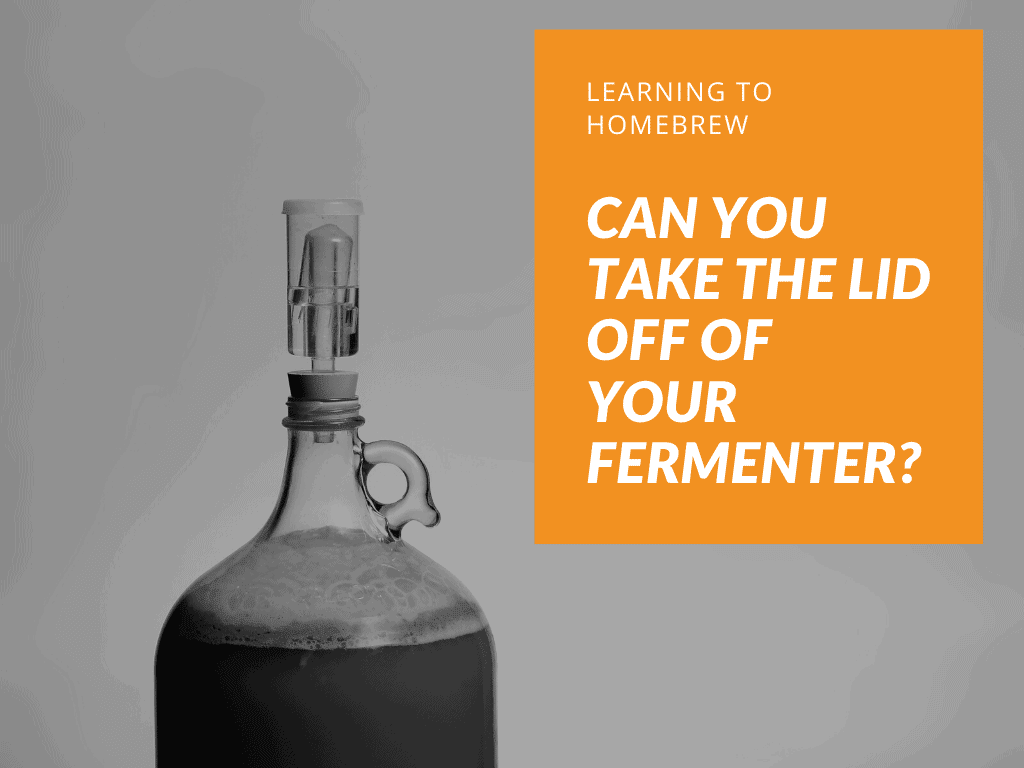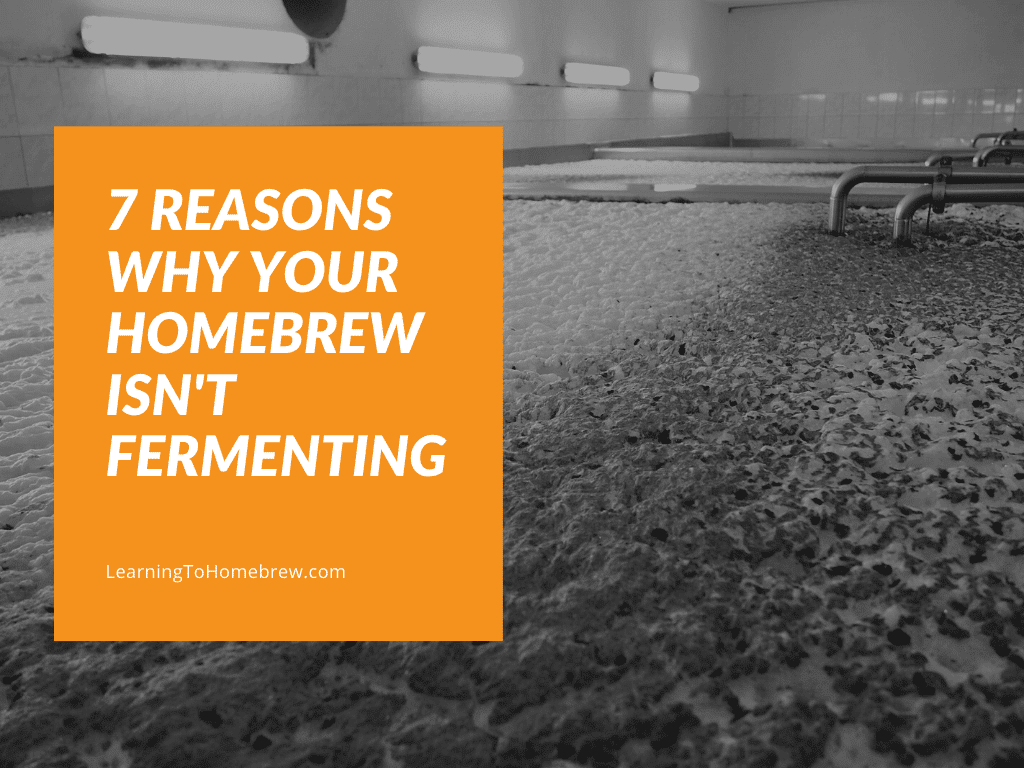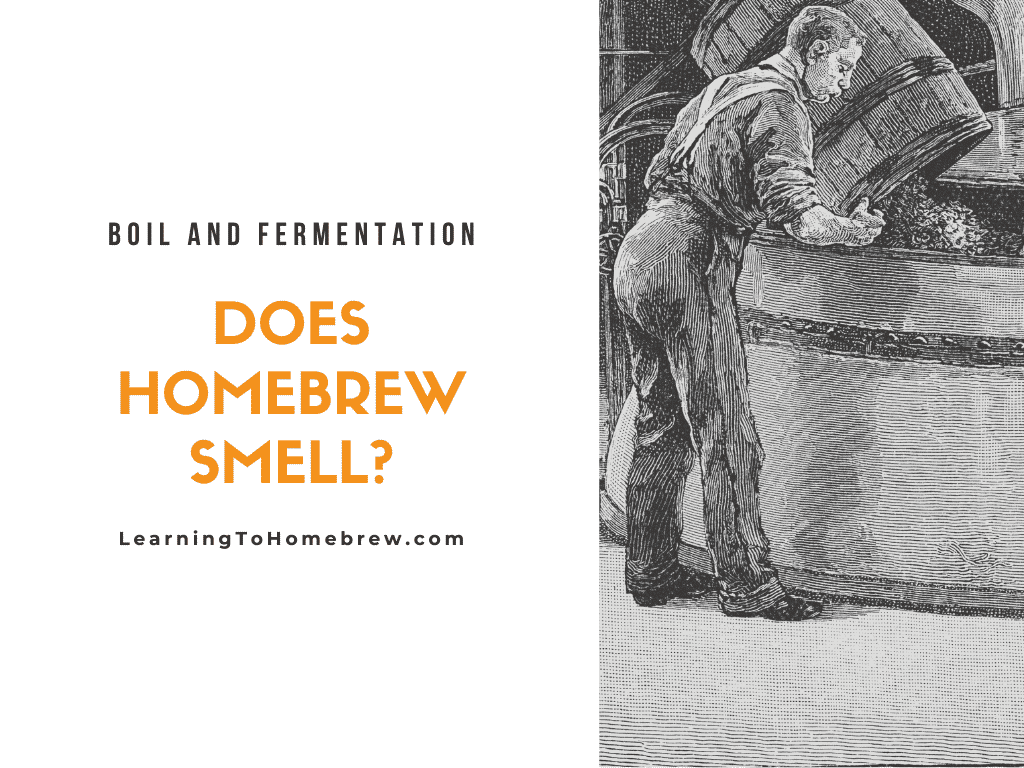There aren’t many reasons why a homebrewer might want to know how to stop fermentation in their beer but nonetheless, it is a question asked fairly frequently.
Homebrewers can stop fermentation in beer by crash-chilling it to freezing temperatures (32 °F), filtering out the yeast, pasteurizing it, or adding Potassium sorbate or Campden tablets. Which solution you use will depend on the reason that you need to stop fermentation.
Like most things in homebrewing, the simple explanation likely is enough to get you moving in the right direction but you will need some more detail to get the job done. Let’s dive into each option and see what it would look like in practice.
Topics We Cover
How to stop beer fermentation
Under normal circumstances, there is no need to worry about stopping your beer’s fermentation because the process will complete on its own, naturally, and shouldn’t need any outside help.
With that said, there are a few reasons why you might want to stop fermentation or at least stop it from starting back again.
For instance, certain styles of beer are meant to be uncarbonated. As such, you might want to stop any fermentation from happening inside your bottles to prevent carbonation from forming. In other cases, you might be trying to keep some residual sweetness in your beer such as when making fruit additions to a sour beer.
In any case, the route you take to stop beer fermentation will depend largely upon under which circumstances you find yourself in.
With that in mind, I’ll tackle the four ways to sto p fermentation in order of easiest and least likely to cause problems with the final product.
Chilling your beer will stop beer fermentation early
The simplest and easiest way, by far, to stop fermentation in its tracks is to crash cool the beer down to freezing temperatures (around 32 °F). It’s also the preferred method unless you simply can’t use it for whatever reason.
We all know that yeast has a preferred temperature in which to operate while they are fermenting and it is usually on the cooler side of room temperature.
Once yeast gets chilled down to refrigerator temperatures, however, their activity will slow way down to the point of dormancy. At that point, they will no longer be able to eat the sugar and convert it into sugar and alcohol which will stop fermentation naturally.
In most cases, homebrewers would wait to chill their beer down until they were almost ready to drink it.
This could be inside a keg that will be force carbonated and, therefore, doesn’t require any natural carbonation. It could also be inside bottles in which the carbonation is provided naturally by a little extra sugar fermentation.
If you don’t want this extra fermentation to happen, just chill your beer.
Filtering yeast out of homebrew will halt fermentation
If chilling your beer isn’t an option, maybe because you don’t have enough chilled storage available, and you still need to keep your beer from fermenting then you do have a couple more options.
One option for stopping fermentation is to remove the yeast itself through a filtering process. Racking your beer off of the yeast cake is not enough, you will need to sterile filter your beer through at least a .5 micron filter. This size will ensure that no yeast remains in your beer and you can then store it wherever you would like.
A word of warning for this method is that in addition to filtering out the yeast it is also likely that you will filter out some material that provides flavor and aroma to your beer. Traditionally, beer has always had a bit of yeast in it so it is an expected part of the flavor profile. This effect will be more or less noticeable depending on the style.
I’ve already written an article about whether or not you should filter your homebrew before bottling and, generally, it’s advised that you don’t.
If at all possible, keep those yeasties alive and in your beer!
Potassium sorbate and campden tablets stop fermentation naturally
I should point out right away that this particular method won’t actually stop fermentation from happening, but it can stop the yeast from reproducing and accelerating the fermentation process. Essentially, if your beer has already ‘completed’ its fermentation and you just want to ensure that it doesn’t start back up then this option could work for you.
But if you want a way to halt fermentation permanently, this is it.
Using potassium sorbate, along with Campden tablets is fairly common in the winemaking world because they typically don’t want any carbonation to form inside their bottles (unless it’s champagne!). Potassium sorbate is a common food preservative and you can find it in most homebrew supply stores and even non-specialty stores.
Campden tablets stop fermentation by neutralizing the yeast and are also easy to find. In fact, many brewers use them as a water treatment before mashing and boiling.
For each gallon of beer in your batch, you will add .5 teaspoon of potassium sorbate mixed into .25 cup of boiling water. Using the boiling water will ensure that it is sterile and dissolved into the liquid. You can slowly stir the word after adding, but avoid introducing any excess oxygen into it!
In the beer world, you would simply add these ingredients to your fermenter and allow them to do their thing. Both potassium sorbate and Campden are safe for human consumption, especially in the amounts you would use for this application, so you shouldn’t worry too much about them ending up in the final product.
Pasteurizing beer would stop fermentation
We’ve talked about cold, but now we’re going to talk about heat!
Pasteurization is a simple process in which a food or beverage is heated to a certain temperature for a certain amount of time to deactivate organisms that could lead to spoilage, including yeast. With the yeast gone, there will be no way for your beer to continue with the fermentation.
This pasteurization process is actually fairly common in commercial breweries that don’t want to risk secondary fermentation happening inside their kegs or bottles during transport or sitting on store shelves.
To ensure all of your yeast have died, you will need to bring your beer up to a temperature of about 140 °F for several minutes. If your beer is bottled, you can simply place the bottles into a pot of hot water until the temperature has been reached and then hold it there for several minutes.
The downside to this method, in addition to the extra effort involved, is that the heating process could potentially cause issues with the flavor of your beer. The size of the impact will depend heavily on the style of your beer and the ingredients used.
Of course, taste is always subjective so you might find that this is a solution that you prefer to use because the flavor is in line with your preferences.
For the web story version of this article click here!





